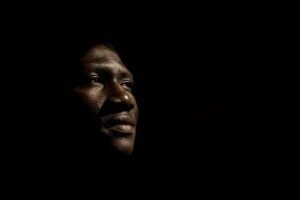African Slaves turned to Christ
Africans turn to Jesus and seed Pentecostal movement
Through the grinding crucible[1] of life, the African Christians overcame the world and became something new through spiritual renewal that blessed the entire world.
Raboteau teaches us how God has worked in African American history, “The Christian believes that God acts in history. In my study of African American history, I have been moved by the pervasive faith of black Christians that God was acting in their own history (Raboteau 1995, 14).” Some may ask what has explicitly been developed[2] and delivered to the world by the invisible[3] African renewal leaders? “The darker race would develop a classless, raceless, and weaponless Christianity that would welcome the return of the Universal Christ (Raboteau 1995, 13).” The egalitarianism typical with a biblical outpouring and the racist backlash that occurred “illustrate that the type of behavior taking place at Azusa Street was that which was already common in Black Christianity (MacRobert 1988, 79).” Treadwell recounts a sermon given by Richard Allen, a former slave, that shows the Christian Orthopraxy and Christian Orthodoxy developed by slaves and a nearly forgotten part of Christian History. The continual unbroken line of African American renewal should be celebrated and highlighted in Christian gatherings. What an excellent demonstration of forgiveness and unshakable faith the slaves had in Jesus Christ.
That God who knows the hearts of all men, and the propensity of a slave to hate his oppressor, hath strictly forbidden it to his chosen people, “Thou shalt not abhor an Egyptian, because thou wast a stranger in his land.” Deut. 23. 7. The meek and humble Jesus, the great pattern of humanity, and every other virtue that can adorn and dignify men, hath commanded to love our enemies, to do good to them that hate and despitefully use us. I feel the obligations, I wish to impress them on the minds of our colored brethren, and that we may all forgive you, as we wish to be forgiven, we think it a great mercy to have all anger and bitterness removed from our minds; I appeal to your own feelings, if it is not very disquieting to feel yourselves under dominion of wrathful disposition.[4]
[1] (MacRobert 1988, 10)
[2] Black Christianity and Proto-Pentecostalism “had developed as part of the bi-cultural synthesis which had taken place during slavery (MacRobert 1988, 79).”
[3] “Therefore it has become the duty of the historians to research if Negroes: worshiped no gods upon coming to America; worshiped gods culturally linked to African traditions; or worshiped in a clandestine fashion outside of white influences (Treadwell 2017, 12).”
[4] (Treadwell 2017, 14)



